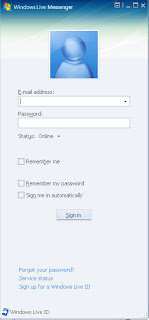
Whilst instant messaging has been around for quite some time and is more popular with teenagers, it is also used in business too. Many business men and women find it’s a useful tool for keeping in touch with both clients and colleagues when they’re working remotely and need to find out information or want to ask a question quickly.
In other words, if the alert says they’re busy, do not send them an instant message until they put up the alert saying they’re available. Even where it does say ‘available’, it’s always polite to ask first if they’ve got a bit of time to spare.
Emoticons are more the domain of people who are using instant messaging in more of a social setting but if they’re used within the organization you’re working in, use them sparingly. For example, a smiley face to indicate your pleasure at something somebody has told you is probably fine but don’t pepper your instant messaging conversations with them as it can become confusing and isn't good etiquette.
Use Of The Away Message Alerts
For those of you who are familiar with instant messaging (IM), you’ll know all about the away message alerts you can switch on or off beside your name so that people will know if you’re available to message. One of the most important aspects of instant messaging etiquette in business is to respect these. Therefore, if somebody’s alert says ‘away’ or ‘busy’, treat that in much the same way as you would a ‘do not disturb’ sign on a door.In other words, if the alert says they’re busy, do not send them an instant message until they put up the alert saying they’re available. Even where it does say ‘available’, it’s always polite to ask first if they’ve got a bit of time to spare.
Be Brief
Don’t type long winded paragraphs when using instant messaging. What you need to say should be concise and to the point. On the other hand, don’t revert to ‘text speak’ either. Abbreviations like LOL (laugh out loud) or BRB (be right back) might be perfectly acceptable within an instant messaging conversation you’re having with your best friend but might not be understood or thought appropriate by a colleague or client.Be Careful What You Write
There is a danger in thinking that an instant messaging conversation is supposed to be between two people and that, therefore, whatever you say is private and confidential. However, that’s far from the truth. Just as an email can be sent around the office so too can instant m essenger conversations be saved and then redistributed. Therefore, don’t include anything that you wouldn’t be prepared to write in an email or typed letter.Avoid Confrontation
Instant messenger communications in business should be only be used for things like arranging a meeting or to ask a quick question to which you’re looking for a quick response. Don’t use it to criticize or to reprimand somebody. These are situations which require face to face communication.Using Emoticons
Emoticons are more the domain of people who are using instant messaging in more of a social setting but if they’re used within the organization you’re working in, use them sparingly. For example, a smiley face to indicate your pleasure at something somebody has told you is probably fine but don’t pepper your instant messaging conversations with them as it can become confusing and isn't good etiquette.

